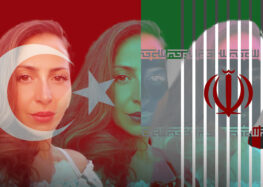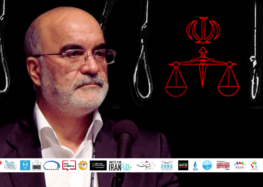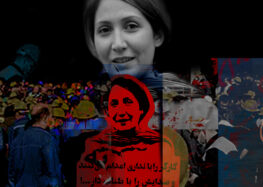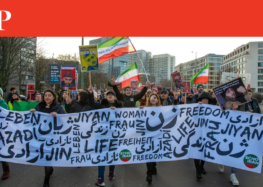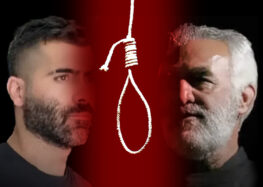Iran’s War on Women: Using Reproductive Healthcare as a Tool of Political Repression
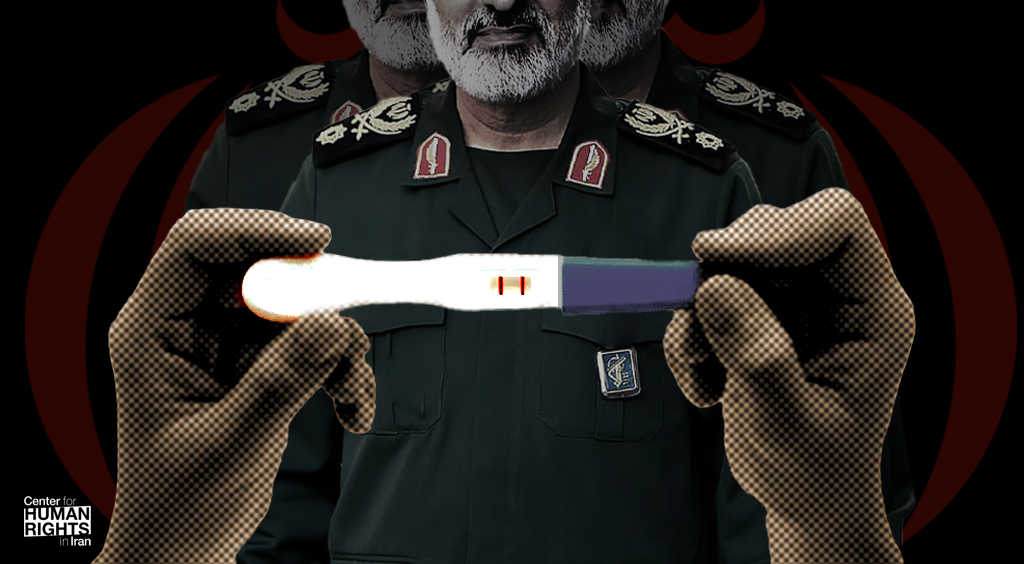 Security Agencies Play Heavy Role in Anti-Abortion Centers
Security Agencies Play Heavy Role in Anti-Abortion Centers
Criminalization of Abortion, Lack of Contraceptive Services Target Marginalized Women
October 17, 2024 – As part of an accelerating state assault on women’s freedom and autonomy, the Islamic Republic has weaponized women’s access to basic reproductive healthcare in Iran, criminalizing abortion, severely restricting family planning services, and channeling women seeking reproductive healthcare—especially those in marginalized regions—to anti-abortion centers that have been heavily shaped by the country’s security agencies, the Center for Human Rights in Iran (CHRI) has learned.
In-depth discussions CHRI has conducted over the last month with lawyers and activists in Iran reveal that these measures will particularly harm women in the less developed provinces, intensifying the intersectional discrimination minority women face in Iran.
“The Islamic Republic continues to use women’s bodies as a tool to advance its repressive political agenda,” said Hadi Ghaemi, the executive director of CHRI.
“The Iranian authorities are stripping women of their autonomy, endangering women’s lives, and perpetuating the Islamic Republic’s oppression of women and minorities, as these reproductive healthcare policies will especially harm women in marginalized areas,” Ghaemi added.
CHRI calls on the UN, governments worldwide, human rights organizations, and international medical associations to demand that the authorities in Iran:
- Repeal legislation that severely restricts access to abortion, contraception, voluntary sterilization services and information, and end the criminalization of abortion;
- Provide comprehensive family planning services to all Iranian citizens, including full contraception and abortion services;
- Ensure that these services are available to all, regardless of income level, and therefore available in public as well as private health clinics.
“You will never see such activities in areas where middle-class or rich people live.”
CHRI has learned that the anti-abortion centers that have been established in over 200 cities in Iran as part of the “Nafas” (or “Breath”) Institute, and which are designed to stop women from terminating their pregnancies, have been targeted to concentrate on marginalized areas, and have been heavily shaped by the Islamic Republic’s security agencies.
A human rights lawyer inside Iran told CHRI:
“Their methods [establishment of the Nafas Institute and other measures restricting women’s reproductive healthcare] can never advance because they derive from the ruling security establishment. Mechanisms such as those deployed by the Nafas group are based on ideas taken from the security and police forces in order to have effective control over the people. It should be noted that these measures are usually implemented among the vulnerable sections of society with financial incentives in order to make people agree to follow such policies. You will never see such activities in areas where middle-class or rich people live.”
An experienced female activist in the field of women’s rights in Iran, with in-depth knowledge of the Nafas Institute, told CHRI:
“The important point is that the groups and organizations that work under Nafas in this project are not real NGOs. Even charitable groups and grassroots women’s organizations have refused to participate in [the Nafas] project. The national headquarters for NGOs basically had no knowledge of it. The fact is, there are a series of special groups [that are close to the ruling establishment] operating under this [Nafas] organization, mainly in the east of the country in Khorasan-Razavi and South Khorasan provinces. These special groups have been part of the government’s strategy for years. They sometimes do not even have the necessary permits to operate as an NGO and yet they engage in activities to advance their desired political goals.”
Anti-Abortion Centers Use Relatives to Pressure Women, Deeply Violating Privacy
In an interview with the Iranian Labor News Agency (ILNA) on the anti-abortion centers, Saber Jabbari-Farouji, Director of the Rejuvenation Center at the Ministry of Health, said relatives, neighbors, or fathers can “alert” authorities to a woman’s intention to abort, initiating efforts by the group to establish an “emotional connection” with her and advise against the procedure. He added that around 60 percent of women reconsider their decision after these “interventions.”
The identification of women seeking abortions through health centers and information from relatives deeply violates women’s rights to privacy and healthcare.
The anti-abortion centers collaborate with other semi-official organizations, including the Islamic Revolutionary Guard Corps’ (IRGC) Basij organization, which is a voluntary militia under the authority of the Guards that has a history of unlawful and violent vigilante activities against women.
On September 10, 2024, Jabbari-Farouji said at a national conference on maternal health: “According to the edicts of all senior religious authorities, the fetus has life from the moment it plants itself on the mother’s womb, and aborting it is considered to be murder. Many people, when they realize that aborting a fetus under four months is equal to killing a child, they refrain from it.”
“A tool to create fear among medical workers so that they don’t help women.”
The establishment of these anti-abortion centers follows what the UN described as “crippling” anti-abortion legislation passed in Iran in 2021, the “Rejuvenation of the Population and Support of Family” law, which effectively banned abortion, with very few exceptions, and prohibited public health services from offering family planning, including contraceptives and voluntary sterilization procedures.
The law also shifted the decision-making power for therapeutic abortions—terminated pregnancies due to threats to the woman’s life or fetal anomalies—from the pregnant woman and her physician to a panel consisting of a judge, medical doctor, and forensic doctor.
In addition, Article 61 of the law states that if carried out on a large scale, abortion would fall under the crime of “corruption on earth” and thus would carry the death penalty.
Saeid Dehghan, a prominent Iranian human rights lawyer, told CHRI:
“The anti-abortion centers and restrictions on women’s access to healthcare not only contravene international legal obligations, such as the right to health under the International Covenant on Economic, Social and Cultural Rights (ICESCR), to which Iran is a party, but also conflict with Iran’s own constitution, which guarantees the right to life, human dignity, and equal protection under the law (Articles 22, 29, and 20). Article 61 [of the anti-abortion legislation], which says that if carried out on a large scale, abortion would fall under the crime of ‘corruption on earth’ and thus carry the death penalty, shows the involvement of the government and the Islamic Revolutionary Guard Corps (IRGC) in these political decisions; it is a tool to create fear among medical and health workers in the country so that they don’t help women.”
In response to the 2021 law, UN human rights experts said: “It is shocking to see the extent to which the [Iranian] authorities have applied criminal law to restrict women’s fundamental rights.”
The UN experts noted that the law, which “is in direct violation of women’s human rights under international law,” will “effectively force many women and girls to continue unwanted pregnancies to term which would be inherently discriminatory… [and] will disproportionately impact women in situations of marginalization and victims of sexual violence.”
Iran’s policies regarding reproductive healthcare followed a 2014 decree by Supreme Leader Ayatollah Ali Khamenei, labeling the declining birthrate a national security issue and encouraging Iranians to have more children.
A Legal and Health Crisis for Women
These measures have left Iranian women—especially those in marginalized and underprivileged areas—with few legal options to access reproductive healthcare, further entrenching a policy of forced childbearing and institutionalized, gender-based discrimination.
As a result, underground abortion services have proliferated, putting women at significant risk of health complications and death.
“These restrictions raise serious concerns not only from a human rights perspective but also under Iranian legal principles. Iran’s laws should prioritize the protection of women’s health, dignity, and autonomy, and respect their right to access essential healthcare,” said human rights lawyer Dehghan.
“The assault on women’s reproductive rights in Iran denies women the power to shape their own futures and is a stark reflection of the systemic discrimination and violence that women face in the Islamic Republic,” Ghaemi added.
This report was made possible from donations by readers like you. Help us continue our mission by making a tax-deductible donation.

